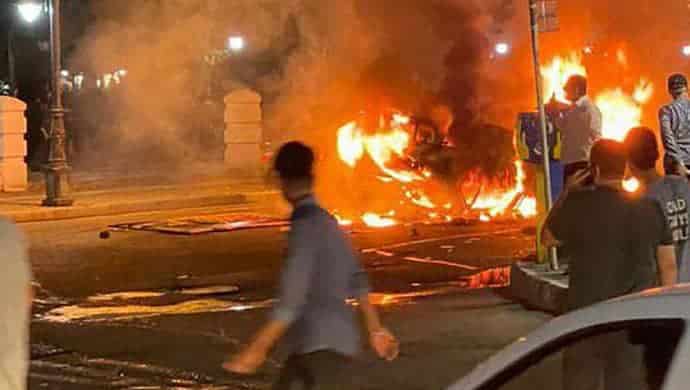
After nearly two months of the Iranian people’s national uprising, it is long past time for the international community to recognize the real possibility of regime change and begin acting accordingly. Western leaders have spoken out in support of the protesters. But, in general, those statements have fallen short of adequately endorsing the people’s movement for regime change or acknowledging their right to self-defense in the face of escalating state repression.
However, there is much they can do to further those goals, and the majority of these actions would also help the Iranian people achieve their own goals without involving direct foreign intervention in Iranian affairs.
So far, Iranian authorities have killed approximately 550 protesters and arrested approximately 30,000 others. Over the last two weeks, around 1,000 indictments have been announced in Tehran, some of them for political offenses such as “enmity against God,” which carry the death penalty. The people have bravely resisted all attempts at repression, frequently confronting heavily armed security forces with only rocks in hand. But, in the absence of serious external pressure, that resistance can only go so far.
Crackdowns will inevitably continue, either until the regime falls completely or until the mullahs are convinced that continuing puts them in greater danger than stopping. They are unlikely to reach that conclusion anytime soon, but if they do, it will be due to dual pressures from the domestic population and the outside world.
Since the death of Mahsa Amini at the hands of Tehran’s “morality police,” the Iranian people have been contributing to the situation. They have made it clear at every turn that nothing will force them to return to the status quo. Security forces are still preoccupied with demonstrations in over 200 cities that call for the dictator’s death and declare that the regime will fall in “this bloody year.”

Shiite tradition dictates that memorials be held 40 days after a person’s death, and these ceremonies have sparked numerous protests involving tens of thousands of people.
The sheer size and frequency of these gatherings clearly put the regime’s long-standing strategy for quelling public unrest to the test. As a result, even after the head of the Islamic Revolutionary Guard Corps declared an end to “riots” and threatened anyone who continued to take to the streets, the uprising lasted into its third month. Despite the fact that Supreme Leader Ali Khamenei has made similar threats, protesters continue to call him out by name and insist that his reign is coming to an end.
There are simple steps that world powers can take to remove that sense of impunity if they want to help convince Tehran that it cannot hope to maintain power while cracking down on dissent. Iranian embassies should be closed immediately, and all ongoing negotiations with the regime should be terminated. World leaders should also consider engaging in dialogue with the driving force behind the ongoing unrest, the National Council of Resistance of Iran (NCRI), which represents a viable, democratic alternative to theocratic rule.
 MEK Iran (follow us on Twitter and Facebook), Maryam Rajavi’s on her site, Twitter & Facebook, NCRI (Twitter & Facebook), and People’s Mojahedin Organization of Iran – MEK IRAN – YouTub
MEK Iran (follow us on Twitter and Facebook), Maryam Rajavi’s on her site, Twitter & Facebook, NCRI (Twitter & Facebook), and People’s Mojahedin Organization of Iran – MEK IRAN – YouTub







